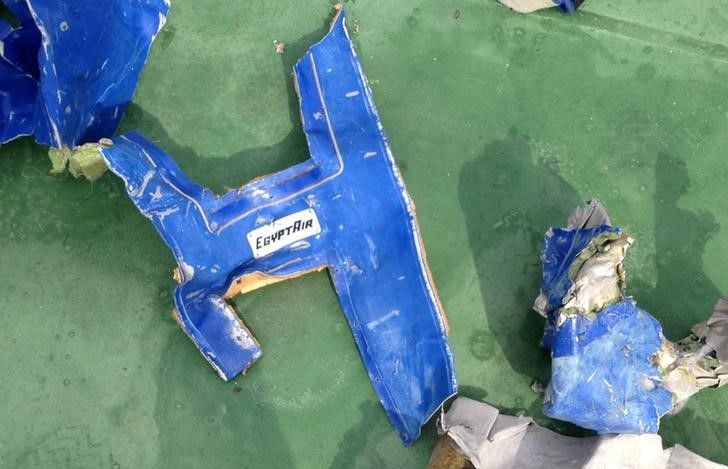
A second flight recorder has been retrieved from the crashed EgyptAir flight MS804, containing data from aircraft systems which could shed light on what brought the plane down last month, Egyptian investigators said on Friday.
An Egyptian committee investigating the crash into the eastern Mediterranean Sea, which killed all 66 people on board, made the announcement a day after search teams found the cockpit voice recorder.
The two blackbox recorders are crucial to explaining what went wrong on the Airbus A320 which crashed early on May 19 on its way from Paris to Cairo.
The Egyptian investigation committee said preparations were under way to transfer the two recorders to Alexandria, where they will be received by an official from the general prosecutor's office and investigators.
No group has claimed responsibility for bringing down the plane, but investigation sources have said that it was too early to rule out any causes, including terrorism.
If intact, the cockpit recorder should reveal pilot conversations and any cockpit alarms, as well as other clues such as engine noise. But crash experts say it may provide only limited insight into what caused the crash.
Preserved in water to prevent oxidization until it can be opened in controlled conditions, the data recorder now on its way to Alexandria greatly increases the chances that the cause can be discovered, as long as its chip is intact, experts say.
To unlock the evidence, investigators will remove the chip from a protective sleeve, clean it and inspect it for damage.
While no explanation for the disaster has been ruled out, current and former aviation officials increasingly believe the root of the crash lies in the aircraft's technical systems, rather than deliberate sabotage.
Investigators will also examine the digital records of pilot commands and, if available, the tape of their conversations to try to replicate what they understood and whether their actions either dampened or added to any technical problems.
There has been a series of airplane accidents at high altitude blamed on a cocktail of technical and pilot flaws.
The crash is the third blow since October to Egypt's travel industry, which is still suffering from the 2011 uprising that ended Hosni Mubarak's 30-year rule.
A Russian plane crashed in the Sinai Peninsula last October, killing all 224 people on board in an attack claimed by the Islamic State militant group. In March, an EgyptAir plane was hijacked by a man wearing a fake suicide belt. No one was hurt.
Uncommon Knowledge
Newsweek is committed to challenging conventional wisdom and finding connections in the search for common ground.
Newsweek is committed to challenging conventional wisdom and finding connections in the search for common ground.
About the writer
To read how Newsweek uses AI as a newsroom tool, Click here.






